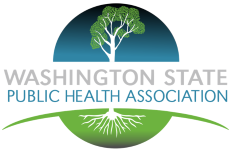Adverse Childhood Experiences and Public HealthBy: Amy Person, MD
Early childhood events shape health across the lifespan particularly during critical periods of development. Understanding a person’s risk or protective factors can change their health trajectory. Many mental, emotional, and substance use disorders have their roots in childhood. Early intervention and mental health promotion can be effective in delaying or preventing these disorders. The landmark CDC-Kaiser Permanente Adverse Childhood Experiences (ACE) Study showed how exposure to stressful and traumatic events in childhood increased the likelihood of mental illness and substance abuse in adulthood. Higher ACE scores were also associated with greater risk of chronic disease and poor physical health. In 2009 Washington State was one of the first states to collect state specific data on the prevalence of ACEs in adults in order to guide prevention efforts. Today, community initiatives such as
are working across the state to build resilient communities and reduce the impact of ACEs. Public health departments are using trauma-informed approaches to recognize and respond to clients and staff that have been impacted by trauma and most importantly, to prevent re-traumatizing them. For more information about behavioral health and the public health connection watch the June 2017 Transformation Talk hosted by the Washington State Department of Health. Past blogsCelebrating National Public Health Week 
April 1, 2018
Public health is essential to building a healthier Washington and stands on foundational public health services like chronic disease and injury prevention, maternal and child family health, access to clinical care, environmental public health, vital records, and communicable disease control. Although Public health week has already passed, there are still plenty of ways to get involved and advocate for a healthy community. Read more. Legislative Education Day: What Comes Next? By Heather Thomas, MPA, Public & Government Affairs Manager, Snohomish Health District 
On February 7, more than 150 public health ambassadors from around the state gathered in Olympia for our annual WSPHA Legislative Education Day. The morning session kicked off with a welcome from WSPHA president David Reyes, followed by remarks from Secretary of Health John Wiesman. Secretary Wiesman shared his perspectives on a variety of public health issues at the state and federal level. Read more
Legislative Education Day
By Anne Burkland, Government Relations Specialist, Public Health Seattle and King County

February 1, 2018
Join public health officials from across the state and have your voice heard at our annual legislative education day on February 7, 2018.Your day will begin with Secretary of Health John Wiesman. You’ll also hear from state lawmakers and your colleagues who are leading the charge for more funding dedicated to public health. You’ll be provided talking points and an opportunity to develop and practice the key messages you want your representatives to hear. Read more
The Opioid Epidemic in Washington
The opioid epidemic has impacted every community in Washington State. Across the country, opioid overdose is now the leading cause of accidental death. But some counties are hit harder than others and disparities exist between how racial and ethnic groups are burdened with the epidemic. Solutions must be both based in local communities and supported across the state. Our Washington state opioid response plan calls on all of us, state government agencies, local health departments, professional groups, community organizations, health care systems, and others to work together on priority areas. Read more |

 Behavioral health disorders are common – but what role can public health play?
Behavioral health disorders are common – but what role can public health play? 
